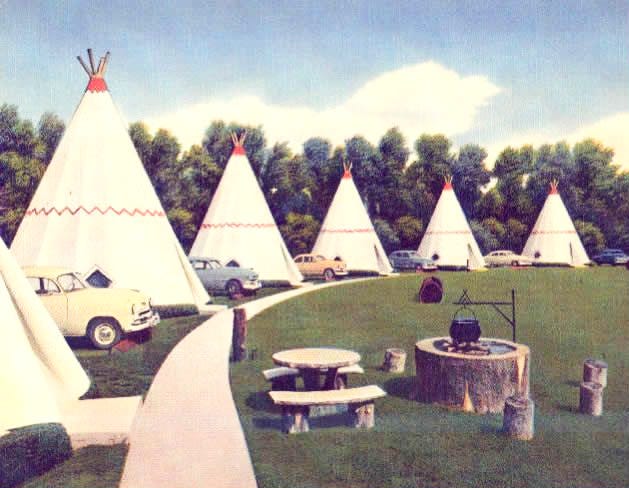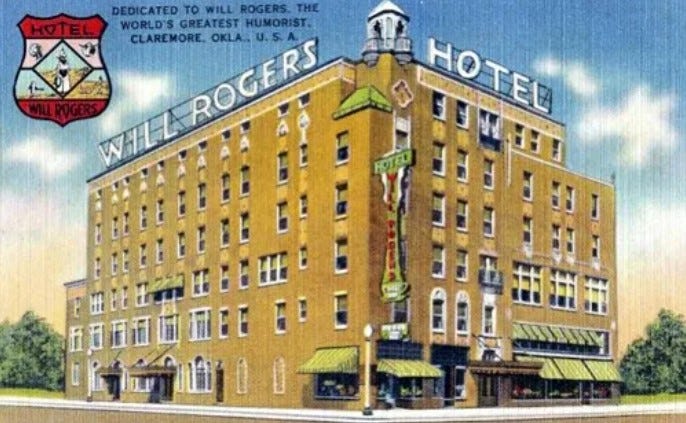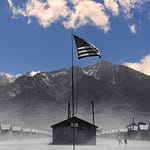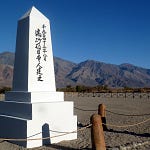A tear splatted onto the keyboard of her laptop. The image on the screen blurred as Lucia Montoya realized there were long-held secrets in her family. Secrets that, if known, would have spared years of heartache and bitterness for those she loved most.
Lucia raked a black, curly lock of hair away from her face and blinked her eyes to focus. She had unusual eyes—a pale blue—and when not overflowing with tears, they were clear as crystal. Her art history professor—the one she admired for her unstructured lectures that looped round and round, associating many things with many other things—had said to her one day, “Your eyes look like dolomites mined from the Azcarate quarry in Navarre. Here, look.” She reached behind her on a bookshelf and produced a multi-faceted crystal. Lucia had only gone to her office to ask if she could get extra credit for a project she was working on and was flummoxed with all this talk of her eyes and dolomites from Spain of all places.
Another drop fell from one of her dolomite-like eyes and splashed onto her throat. It trickled down her chest onto her blouse. The wetness spread out and left a salty ring on the silk fabric. In spite of herself, Lucia began to think about a recent stop she’d made at a crystal shop where the old hippie who ran it told her she needed to surround herself with crystals because of their healing properties. Their spirituality, energy, clarity and transformation. Clarity and transformation, she thought. She needed that right now. She dug around in the bag of granola she’d bought from the old crystal guy—best she’d ever eaten—and poured a fistful into her mouth, chewing on it along with the secrets there, exposed on her screen.
The whole saga began months ago when Lucia and her girlfriend Chloe had a terrible argument over, of all things, religion—some tedious concept Chloe’s rabbi taught called Tikkun Olam. Or something like that that had to do with taking actions to seek social justice and repair the ills of the world and further bullshit in Lucia’s opinion, and the discussion escalated into a rift between them that was only resolved when they both promised never to bring up religion again.
But another argument erupted when Chloe wanted Lucia to send a DNA sample to one of the websites that helped people trace their roots, ethnicity, this thing, that thing, and Lucia refused, saying she didn’t care. Chloe said she had been putting together clues from Lucia’s family stories that led her to believe there might be something hidden—something of a religious nature. And that’s when Lucia erupted. Chloe had broken her promise about not bringing up religion. Lucia, a lapsed Catholic, had no patience for her own religion and her family’s dogged adherence to Catholicism any more than she had for her girlfriend’s adherence to Judaism. In Lucia’s mind and story, religion was an archvillain.
Chloe had to admit—at the risk of a further drubbing—that she had already sent a sample of Lucia’s DNA for testing. And now, just tonight, Lucia saw the results of the sneaky DNA test. And there, swimming through her teary, dolomite eyes, were the secrets. Goddamn it, she thought. People just can’t help themselves. Human beings can’t help themselves. They have always gotten it all wrong.
John Lennon, she thought, was her only prophet. His gospel filled her mind. Imagine there's no countries, It isn't hard to do, Nothing to kill or die for, And no religion, too, Imagine all the people…Livin' life in peace.
Lucia grabbed her phone to call her grandmother Miriam before it struck her—again—that Miriam was gone. When would she remember? When would her hand stop reaching for the phone?
Now it was only in Lucia’s heart and mind that Miriam lived. Miriam’s stories flowed through her like the blood in her veins. A sweet trove of memories, always starting with the long-ago journey Miriam took with her new husband Isadore to the small town of Dixon.
Isadore Kramer had meticulously mapped out the route he and his new bride Miriam and younger brother Scooter would follow along the still-new Route 66 from St. Louis, Missouri to their destination, the small but bustling town of Dixon on the Texas-New Mexico border. By his calculations: two full days of driving, one hotel stay. And with the picnic basket full of sandwiches and snacks his mother had packed, no more than one meal to buy on the road—IF they decided to splurge.
The trip took five days and included four hotel stays, eight out-of-the-way side trips, three roadside diner meals and an extravagant steak dinner in Claremore, Oklahoma.
What Izzy had not factored into his itinerary was the sheer exhilaration and excitement that would overtake his wife and brother once they hit the road. Before they’d even reached the city limits of St. Louis, Miriam produced a stack of colorful travel brochures she’d been collecting, chock-full of detailed descriptions of all the exotic and historic places they would encounter on their trip west, and she had no intentions of missing any of it. She turned around and draped herself over the car seat and shook her brother-in-law awake. “Scooter Kramer, wake up and look at these wonderful places we’re about to see!”
Miriam and Scooter spread the brochures out all over the back seat of the old Studebaker sedan Izzy had bought used from a college classmate at the University of Missouri shortly after he and Miriam met. Miriam was one of a small percentage of female students overall and the only girl in the Chemistry department. Isadore had fallen in love with her on sight, and she with him. And for the next sixty-seven years, they were rarely out of each other’s sight.
When Isadore read about the oil boom in the Permian Basin way out in West Texas and southeastern New Mexico and the thriving little town of Dixon, he and Miriam decided they would take a gamble, leave school and open a dry goods store there to serve the needs of the growing town. Izzy’s mother and father supported his decision and insisted he should do all he could to persuade his younger brother Scooter, who had shown absolutely no signs of ambition or interest in any worthwhile profession, to go along and join as business partner with Isadore. Scooter, who was always up for adventure, didn’t need much persuading. The idea of the trip alone was enough to entice him. There wasn’t a curio shop, historic marker, novelty roadside attraction or kitschy motel that they missed.
Isadore plunked a nickel in the vibrating bed in the double room he and Miriam and Scooter were sharing at the Wigwam Motor Court in Galena, Kansas. The vibrations distorted his voice in such a comedic way, Miriam—who’d just taken a large swig of Coke—gasped with laughter and swallowed a whole peanut. It was just that afternoon she’d learned the delicious trick of pouring peanuts into a bottle of Coca-Cola from a hotsy-totsy girl behind the counter at a roadside curio shop. And now, after recovering from a coughing attack and in between attacks of the giggles, she admitted to Izzy that he was, of course, right that stopping here was premature. “But,” she said, staring down at her husband’s vibrating face, “the attendant at the Kan-O-Tex service station was right, too, Izzy. Staying here is a once-in-a-lifetime experience.”
Miriam repeated what the Kan-O-Tex man had said about the motel rooms built just like Kickapoo wigwams. As poor, exhausted Izzy looked up at his wife’s vibrating image, he thought she was the most perfect girl in the world. She was wearing a trendy chocolate-brown “squaw dress.” Everybody was wearing them, the perky salesgirl had told her. The dress had blue rickrack trim and Miriam had been loathe to resist a pair of Minnetonka moccasins with red beaded thunderbirds on the toe to go with the ensemble she’d splurged on at Big Red’s Trading Post. She read aloud to Izzy from her guidebook, the sound of her voice coming out in soft vibrating tones: “The shortest section of Route 66 runs through Kansas, the Sunflower State, and follows closely the old Kickapoo and Osage trails.” She added, “And besides, Izzy, it’ll be good luck for us to spend our first night in a state whose motto is ‘Through Hardship to the Stars.’ Isn’t that exactly what we want to do in life together, Izzy? Reach the stars?” As he drifted off to sleep on the jackhammer mattress, Izzy figured there was no arguing with logic like that. And, besides, how could he deny his precious Miriam anything?
When Izzy and Miriam got up the next morning, Scooter was nowhere to be found. When he finally came excitedly through the door with hot coffee and a bag of cake donuts, he had news. He’d been back to the Kan-O-Tex station visiting with his new friend Slim, the one who had recommended the Wigwam Motor Court. Turns out Slim was a font of knowledge and had planted a seed in Scooter’s brain about the potential of making a living in the oil business—not dry goods at all, which was his brother’s meticulous plan. It took Izzy the better part of an hour and a half from Galena, Kansas to Claremore, Oklahoma to get Scooter back on track. For good measure, Izzy made a call to their second cousin who ran a successful department store in Bartlesville, less than forty miles north of Claremore, and asked him to meet them for a cup of coffee and a piece of pie so he could offer words of encouragement about their business plans before they proceeded on their way to Dixon. It was a great idea, Izzy reckoned, and worth the travel delay. And he would have been right if Miriam had not happened upon a glossy brochure all about the swanky Will Rogers Hotel and the newly opened Will Rogers Memorial Museum. “Right here in Claremore, Izzy!” Miriam enthused.
The next few hours were a blur for poor Izzy. By six o’clock that evening, the trio were ensconced in a suite in the hotel. They then proceeded to take the waters of the mineral baths and avail themselves of every other amenity the hotel had to offer, then treated his cousin not to the aforementioned quick cup of coffee and piece of pie but a lingering steak dinner in the hotel’s dining room, followed by champagne and dancing to the hotel’s orchestra until almost dawn. Scooter’s wild-hair idea had not only put Izzy behind schedule, it plunged him into financial arrears that would take no telling how long to recoup and put Isadore into a very much less-than-pleasant mood when they set out, all three of them hung over, the next day.
Driving through Tulsa the next morning, Miriam shot Scooter a stern look as they passed a sign outside Tulsa that read “Tulsa, Oklahoma, Oil City of the World,” making sure he didn’t bring up the offending subject of the oil business. No one spoke a word for the next three hours until they got to Texola, where they crossed the state line into the Lone Star State. Miriam meekly suggested they make a pit stop. Without a word, Izzy pulled into the Magnolia filling station in Shamrock, Texas, then declared in no uncertain terms there’d be NO sightseeing, and the best they could manage for lunch would be a Coke and a candy bar apiece.
By the time they had driven across the Texas panhandle to Glenrio, the little town that sat half in Deaf Smith County, Texas and half in Quay County, New Mexico, the three of them were famished. Gasoline was dispensed on the Texas side due to Texas’ cheaper prices. And because Deaf Smith County, Texas was dry, food and alcohol were dispensed on the New Mexico side of town. While Scooter and Izzy sipped beers in a little cantina on the New Mexico side, Miriam looked at the map and decided they should head south to Dixon on the Texas side of the border because the towns had more interesting sounding names, like Muleshoe. She chimed, “Isn’t that a cute name for a town, Izzy? I wonder if there’s anything to see in Mulesh…” Her words trailed off as she saw Izzy’s stern gaze boring holes into her.
As night fell, the stretches between the far West Texas towns were dark. Miriam and Izzy were tangled up together asleep in the backseat. Scooter kept the headlights on high beam as he drove the last lonesome miles to their new home, sharing the road only with jackrabbits who sped across the road in front of the car, their hind legs stretched straight out behind. Occasionally, he spotted a cottontail sitting frozen as he passed or an unconcerned armadillo ambling across the road, oblivious to its preordained fate as roadkill. The landscape was so flat and barren, Scooter could see the few lights of Dixon miles and miles before he crossed the city limits. When they reached the town, he slowed down and read the city limits sign. Dixon sat at an elevation of 4,000 feet. And in his mind, he added 3 to the number 8,762 that followed the word “Population.”
The streets of town were deserted and the two traffic lights along Main Street had gone into a dormant mode, blinking only yellow. No need for red and green when there was no traffic to direct. Scooter pulled up and parked in front of the storefront of what would be Kramer Bros. Dry Goods. It was in a prime location on the town square, directly across the street from the courthouse. The marquee of the movie theatre just two doors down was still lit, and when Miriam raised up in the back seat, she saw the theatre’s latest offering reflected in the big plate-glass windows of their new store. She began to softly cry. “Three Comrades” starring Robert Taylor and Margaret Sullivan had only now made its way to the small town.
A year ago, Izzy had taken her on a date to see “Three Comrades” at the Ambassador Theater in downtown St. Louis, where traffic and crowds teemed late into the night. She was dressed in fastidious style, a vision of perfection to Isadore. Izzy clutched her hand tightly in his as they navigated along the sidewalk to the entrance of the theater, one of the great movie palaces in the whole country. The Ambassador Theater was built in a grand French Renaissance style and seated over 3,000 people. It boasted a giant organ, the largest of its kind, that filled the elegant space with music. A marble staircase with bronze rails led to the balcony, and enormous chandeliers hung from the 40-foot ceilings. Women freshened lipstick and hairdos in front of gilt-framed mirrors in the ladies room that was a duplicate of Madame Pompadour’s salon at the Chateau Fontainebleau.
By contrast, Dixon’s puny three-story courthouse, the tallest building in town, wasn’t even as big, certainly not as grand, as the Ambassador Theatre. The excitement and enthusiasm Miriam had for the venture she and Izzy had set out on evaporated into the void of the dark, deserted streets and sidewalks, the row of single-level stores and businesses, the dead stillness and deafening silence of the town where she and her husband had chosen to make a life. For Miriam, the kicks of Route 66 dissipated, and the reality of their decision soaked in. Izzy awoke and responded with sheer joy at the sight before him. He shot out of the car and rushed to the front door of the store, where he planted a kiss and declared triumphantly, “We have arrived!”
Isadore, Miriam and Scooter Kramer slept on the floor of their store that night, and, early the next morning, they began to unpack the many boxes of merchandise that were stacked almost to the ceiling and covered nearly the entire floor of their store.
Kramer Bros. would become just Kramer’s by the mid-1940s when Scooter left the store and followed his original idea. He started Scooter’s Rat Hole, an oilfield service company that drilled what were called rat holes, an essential part of an oil drilling rig, and he made himself a fortune.
Running the store together, Miriam and Izzy prospered, built a nice home and at last had a child—just one, a little girl, Sarah. Their lives were complete. When Sarah was a baby, Miriam kept her in the office at the store where she could keep a constant eye on her. Once she grew to be a toddler, Izzy took her everywhere with him. “My shefele,” he called her. His sweetie. His lamb. She was his life, really. His heart. They doted on their precious child. Her bedroom had a dollhouse as tall as she was, furnished with every imaginable piece of furniture Miriam could order from fine stores back east. Dolls and stuffed animals lined her windowsill. Izzy, like all the daddies who doted on their little lambs, and had the means to do so, bought her a miniature fruitwood table with Queen Anne chairs and a china tea set where she held tea parties attended by her friends. Sarah was a golden child. She loved the store and spent as much time there as she did with her school friends. She knew all the customers and their families and had a gift, like her father’s, of the gab.
Izzy decided early on in the business to carry merchandise that would cater to the Mexican population in the county. He saw a need and filled it, and Sarah learned to speak Spanish so she could better serve their clientele.
It wasn’t inevitable—but it was certainly not unlikely—when, as a teenager, she fell in love with Adrian Montoya. Sarah and Adrian had known each other since they were tots. Hector and Olga Montoya had adopted baby Adrian from relatives in northern New Mexico when his mother became ill, and his father was unable to care for his sick wife and raise the baby. Adrian was the light of Hector and Olga’s life, just as Sarah was the light of Izzy and Miriam’s. The two fathers, Hector and Izzy, had an easy friendship. They talked baseball together, and of course, the weather—the lack of rain on the arid High Plains. Olga and Miriam exchanged recipes and friendly gossip, tamales and blintzes. So, when Sarah told her parents that she and Adrian were in love, she never expected it to be earth-shattering news. She had not been raised in a religious home. There wasn’t a temple or synagogue within a hundred miles and not another Jewish family in the county. It was only when she announced that she and Adrian were a couple that she learned her parents expected her to marry within their faith. “What faith?” she asked, incredulous of their expectations. But there was no discussion about it, only a stone wall.
Instead of allowing it to tear them apart, though, Sarah and Adrian eloped. Sarah was convinced her parents would acquiesce once they were married. She was wrong. Although it nearly killed them, Isadore and Miriam Kramer turned their backs on their daughter. It hurt Miriam so much to do it, she shut herself away. Stopped going to the store altogether. Didn’t want to see anyone. Isadore appeared to age fifty years overnight. His shoulders stooped, his hair turned white and his eyes that had always sparkled like a crystal and crinkled at the corners with laughter became dull and sad.
Their daughter Sarah and her husband Adrian lived right there in Dixon, but somehow in the small town, the Kramers and the Montoyas managed to avoid each other. When Sarah became pregnant, she sent her parents a hopeful announcement but received no response. At the hospital, while she labored to deliver the baby girl she and Adrian named Lucia, she cried out for her mother and father. She didn’t know her father was sitting alone in the corridor, waiting until her doctor came to him and reported his daughter and grandchild were fine and healthy. Isadore nodded, then rose and walked slowly away and into the cold early morning darkness.
It was in the cold, early morning darkness many years later that the grown-up Lucia Montoya learned the secrets from her DNA results. Hidden truths. Forgotten truths. Centuries-old cruel doctrines. A country that turned its back on a whole population. In the way one circle intersects with another and then another, she learned of a third cousin, a distant Montoya relative from northern New Mexico where Lucia’s father Adrian was born. This third cousin was in the process of migrating from the United States to Spain. Spain was repatriating Jews from America due to a Spanish law seeking to atone for the expulsion of thousands of Sephardic Jews in 1492. Many of the descendants of those Jews had eventually settled in areas of the U.S. that had been historically colonized by Spain, which included New Mexico. Most were “conversos,” Jews who had converted to Catholicism. But for many, the conversion was false. For generations, many had adhered in secret to the Jewish faith and traditions. Some, though, eventually embraced—or were absorbed into—the culture, the Catholic religion that surrounded them.
This is what struck Lucia Montoya at her core. This was her father’s truth. Adrian Montoya’s family was Jewish. The DNA results were proof. The Montoyas’ ancestors were Cryptic Jews and had for centuries adhered to the Hebrew faith in secret.
Lucia had been told stories about her grandparents Isadore and Miriam, how they disowned Sarah when she married outside their faith. Lucia had witnessed her mother’s heartache. The pain it caused her mother is what had shaped Lucia’s abhorrence of religion. Blind religious dogma. She hated it.
Lucia met her grandmother Miriam for the first time when she was five years old when Isadore died. Miriam implored Sarah to join her in sitting shiva for her father at the house where Sarah had grown up and had so many happy childhood memories. Five-year-old Lucia sat still and quiet in the unfamiliar surroundings of her grandparents’ home and watched her mother participate in religious rituals that were not only foreign to her little dolomite eyes but long forgotten, if ever even known, to her mother Sarah.
While Sarah helped her mother replenish a platter of finger sandwiches, Miriam asked, “What will you have her call me?” Miriam turned to hand her granddaughter Lucia a china dessert plate and dropped a generous spoonful of sour cream onto one of her blintzes. “Will she call me Bubbe?” “Abuela,” Sarah answered unapologetically. “She will call you Abuela.” Miriam, who had never apologized to Sarah for the years she and her husband spurned her, nodded, then turned away.
Lucia spent the rest of her childhood making frequent trips to Miriam’s big house. Miriam started bringing things down from the attic—Sarah’s old things that she and Izzy had kept, ironically, because they couldn’t bear to cast them aside. Little by little, Sarah’s old bedroom welcomed back an elaborate dollhouse, a tiny Queen Anne table and chairs, a china tea set, Sarah’s dolls and stuffed animals, her records and record player. All the things Izzy and Miriam had given their child who was the light of their life before they extinguished her light from their lives.
Grandmother and granddaughter grew close, stayed close. Miriam and Lucia, Lucia and Miriam. Sweet words passed between them for many sweet years. As Miriam approached the end of her life, Lucia was torn by a fear borne of generational trauma. As she sat close to Miriam’s bedside, she could not bring herself to finish the sentence she had begun. “Abuela, there’s something I’ve wanted to tell you…” Lucia wanted to bring Chloe to meet Miriam. Instead, Lucia hesitated, then continued, “…but…well, I’ll tell you another time.” Miriam closed her eyes and said, “Maybe you have someone you want me to meet? Have you found a girlfriend?” Lucia expelled the breath she was holding. “I do,” she said. “Yes, I do, but I was afraid you might—” Miriam opened her eyes and looked into the crystal eyes of her granddaughter. She took Lucia’s hand in hers, held it tightly and whispered, “Lucia, mi amor. Never again.”
The town of Dixon had not been unfazed by the tragedy of the Kramer and Montoya families, but there was little anyone could do to alleviate any of their pain and misery—although it did linger in the collective memory of almost everyone in town. Late one September afternoon, Priscilla Gibson was sitting in the living room with her father Ike, her mother Jerry Dale and a younger cousin Rhonda. It was Rhonda’s birthday, and they’d celebrated it together. Priscilla, who was older by just three years, reminisced about the night Rhonda was born, saying, “I remember the night you were born. I was too young to come inside and see you in the nursery. Remember, Daddy? You held me up to the window outside to peek in and see her.” “I remember it, Nubbin,” Ike said. Priscilla went on to say, “And it’s such a funny thing. I always remember seeing an old man sitting outside the nursery holding his head, sobbing until the doctor came out and told him his grandchild was born, and the mother and child were fine. He stood up then and walked away, out the door. It’s the funniest thing, you know, but I always remember that.”





















Share this post